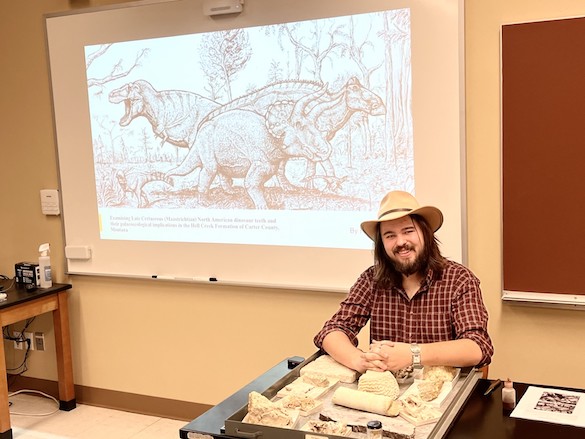 Editor’s Note: Independent Study (IS) at The College of Wooster is a three-course series required of every student before graduation. Earth Sciences students typically begin in the second semester of their junior years with project identification, literature review, and a thesis essentially setting out the hypotheses and parameters of the work. Most students do fieldwork or lab work to collect data, and then spend their senior years finishing extensive Senior I.S. theses. The following is Hudson’s thesis abstract —
Editor’s Note: Independent Study (IS) at The College of Wooster is a three-course series required of every student before graduation. Earth Sciences students typically begin in the second semester of their junior years with project identification, literature review, and a thesis essentially setting out the hypotheses and parameters of the work. Most students do fieldwork or lab work to collect data, and then spend their senior years finishing extensive Senior I.S. theses. The following is Hudson’s thesis abstract —
The Hell Creek Formation is an iconic Late Cretaceous formation that is found throughout the states of Montana, Wyoming, and the Dakotas. Even though it has been studied for over 100 years, questions about the paleoecosytem it represents still need further research. I here examine dinosaur teeth from the Hell Creek of Carter County, Montana, a section that is understudied compared to other exposures of the formation. While many studies focus on the dinosaur fauna of this ecosystem, most of these studies focus on skeletal material. Dinosaur teeth are abundant within microvertebrate sites in the Hell Creek, and these teeth can tell and confirm similar information to that of the skeletal remains, while also providing information that preservation bias might otherwise obscure. By conducting a tooth census comprised of 1,505 dinosaur teeth and comparing that to similar skeletal censuses, I hypothesize that while certain fauna like Triceratops will, as reflected in the skeletal record, be the most abundant tooth taxa, other species not as common from skeletal remains, such as dromaeosaurs, will be more common from teeth surveys, as their hollow bones are subject to preservation bias. I also predict that different lithologies of microsites will contain different teeth assemblages due to niche partitioning within the environment.


